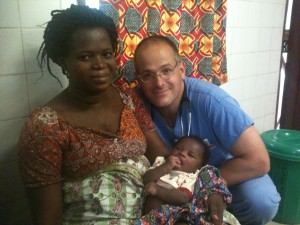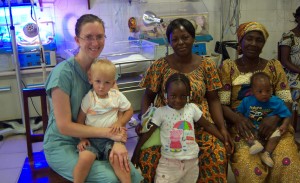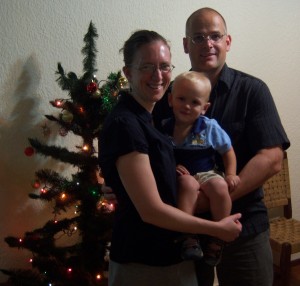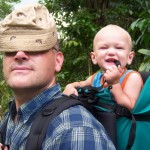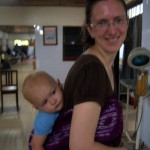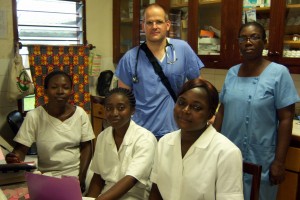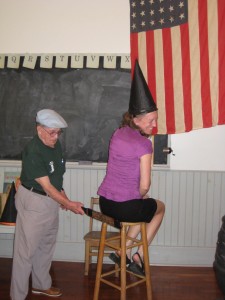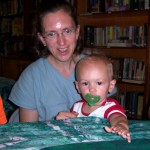What a day! Or is this a week now or a month? I am not sure. The days are fuzzy. It seems like one long day. Time is for me a point of reference, a tool, used to measure things, not a constraint. It does not dictate when I can eat, sleep, etc. I eat when I am hungry and there are no patients to see. I sleep when I am tired and there are no patients to see. I take care of Noah when he is awake and my wife is working. I work when my name is written down on the schedule and or I am called over. It is my life.
#1. The call was straight forward, a transfer from an outside clinic. The story, 38 weeks pregnant, in labor and stuck at 5 cm (need 10 cm to deliver). Fetal heart tones are present and strong. A “no brainer” I thought. The history is blurry and not clear. She has been seen twice at a government clinic during her pregnancy, which in itself is not unusual. The patient is fine but saying she is only 7 or 8 months pregnant. To the ultrasound machine we go. Can you say twins at 31 weeks and 4 days?!! This is not straight forward anymore . . . steroids, magnesium and antibiotics. Delivery occurred 2 days later. Babies are still with us, and doing fine.
#2. 7 year old boy admitted for persistent fever X 10 days. Work up is negative for malaria. However liver enzymes are 5000 (normal is less than 50). Hepatitis B and C are negative. Liver ultrasound is normal. In the U.S. the next steps would include further blood tests and a possible liver biopsy. Treatment would depend on the diagnosis and would be tough under ideal situations. Here there is nothing to do. The boy dies 2 days later during the night shift.
#3. A young women who is pregnant at 35 weeks, started seizing this morning. She is transferred to us. On admit she has a short seizure. Recovery is slow for her but the baby, by doppler, is doing well. Her mother and mother-in-law are by her bed side. The history is, like most histories, blurry and unclear. We start her on magnesium, steroids and antibiotics and pull out the ultrasound machine. Can you say twins at 30 weeks?! Mom seizes again during the ultrasound, fetal heart tones drop, to c-section we go. Delivery occurs immediately. Babies are still with us and doing fine.
#4. 35 year old man with known Hepatitis B and bad ascites (fluid in the abdomen). He is struggling to breathe. However with a little bit of oxygen he is doing better. After taking a history, I am frank with him. I tell him there is nothing we can do for him, and that he will die. He asks when. I tell him I do not know. I ask him if he knows God. He says he does. We pray. He dies 12 hours later.
#5. Another OB transfer, known twin gestation at 29 weeks. Reason for the transfer, mom has high blood pressure. Work up gives mom the diagnosis of severe pre-eclampsia with severe thrombocytopenia. Babies are both breech (butt first). To a c-section we go. Babies are still with us and doing fine.
#6. 13 year old boy admitted for seizures. History is unclear, seizures are atypical. Patient has tetanus. Treatment protocol in the states would probably include sedation, paralysis and ventilation to stop the seizures. We cannot do that here. We treat the best we can. The boy dies 6 days later. This is the 2nd person we have lost in the last couple of months due to tetanus. The other one was 8 days old.
#7. A patient known to us. We had seen her in OB clinic at 22 weeks. She had ruptured her membrane. We told her, at that time, that she most likely will lose her pregnancy and that there is nothing we can do. However, if by God’s grace she was still pregnant in 4 weeks, she should come back to us, and we would do all we can. Today she is 33 plus weeks and has been sleeping on the OB floor for the last 7 weeks with daily monitoring. The baby appears to be doing fine and growing appropriately. We plan to deliver her by c-section at 34 weeks. We are praying for a healthy baby.
#8. She is a beautiful young lady who is once again pregnant. She is here, in OB clinic for her second visit. She is HIV positive, newly diagnosed. It is my job to tell her. I have done this before. I hate it. The news sucks the life out of people. It ages them. This is no exception. I am close to tears.
#9. She came to the OB deck at 25 to 26 weeks complaining of contractions. She was 4 cm dilated. We treated her with magnesium, antibiotics and steroids. She slept on the floor of the OB ward for 10 days prior to delivering at 26 to 27 weeks (normal is 37 plus weeks). The baby is still with us and struggling. We have resuscitated him once.
Two points of View
When will this end? How long can I keep this up? How did the old missionaries of the past do this alone with less resources? On the other hand, what a wonderful job! What great experience! I cannot wait until tomorrow comes!
A question
Am I nuts?
God Bless

